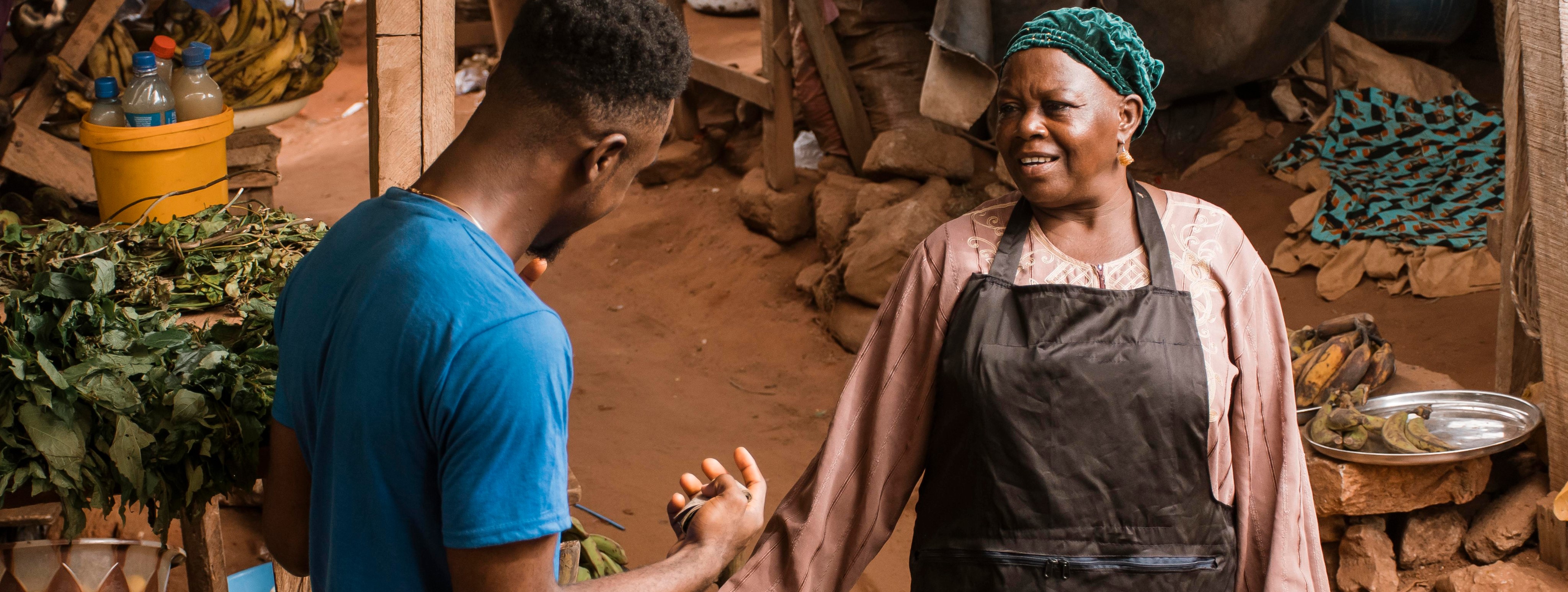
Championing Rwanda’s Circular Food System: Meet the Second Cohort of SMEs Leading the Change
Africa faces the highest levels of hunger globally, with nearly 300 million people affected in 2023—20.4% of its population—compared to lower rates in Asia and Latin America. While hunger has stabilized or improved in other regions, it continues to worsen in Africa. By 2030, over half of the world’s 582 million undernourished people are projected to live in Africa, 130 million more than before the pandemic.
In Rwanda, nearly 40% of food produced is lost or wasted annually, despite agriculture being a key economic driver, employing over 70% of the population and contributing 33% to GDP. Addressing this issue through circular economy solutions is essential to creating a sustainable and resilient food system.
The Circular Food Systems for Rwanda program, funded by the IKEA Foundation, seeks to create a circular economy for food and promote sustainable food systems in Rwanda. The program is working to translate global ambitions of a circular economy on food systems into real outcomes.
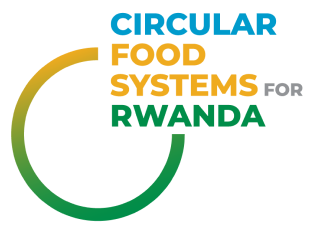
Rwanda’s unique position as a leader in sustainable development is enhanced by this project. With 164 kg of food wasted per person annually according to UNEP’s Food Waste Index Report 2021, the transition to circularity offers immense social, economic, and environmental benefits. Beyond reducing waste, circular food systems create opportunities for job creation, climate resilience, and improved livelihoods for small-scale producers who form the backbone of Rwanda’s agricultural sector.
The Circular Food Systems for Rwanda Program demonstrates the power of SMEs to transform challenges into opportunities. By equipping businesses with the tools to adopt circular principles, the project is fostering a food system that is resilient, inclusive and sustainable.
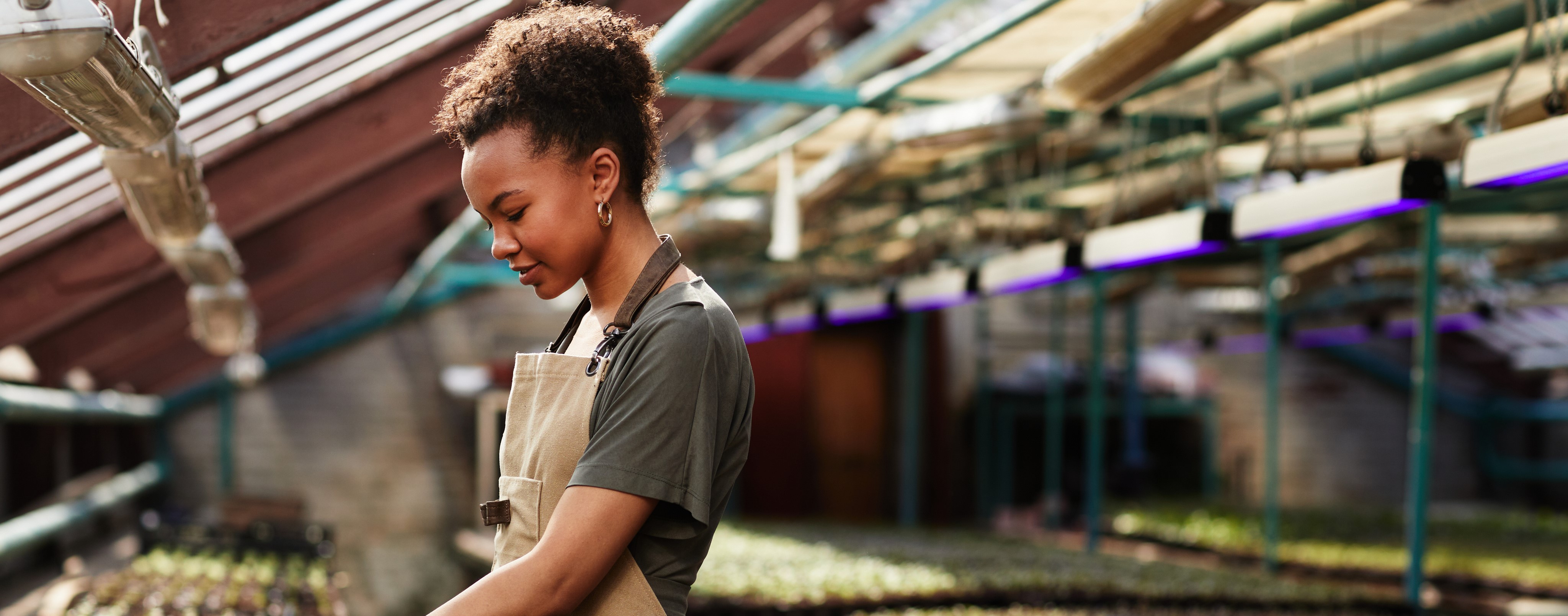
The Circular Food Systems for Rwanda Project, funded by the IKEA Foundation, is unlocking this potential by supporting SMEs to drive the transition toward a circular food economy. The project’s SME Fund provides critical resources, including education, technical assistance, and networking opportunities, enabling businesses to innovate and thrive.
In June 2023, the SME Fund selected its first cohort of seven SMEs from 75 applicants, pairing them with technical experts to develop sustainable, circular practices. These businesses received tailored guidance on enhancing resource efficiency and reducing waste across their operations.
In 2024, the second cohort expanded to 13 SMEs, furthering the initiative's impact. These SMEs are now contributing to a zero-waste food economy through climate-smart technologies, innovative crop development, and other circular practices that bolster food security and economic resilience.

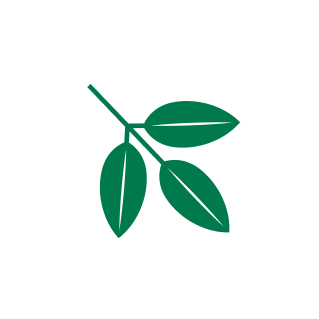
Meet the 13 SMEs in our second cohort, dedicated to advancing sustainable agriculture and fostering circular food systems. Their innovative approaches address the needs of people, nature, and climate, and empower these entrepreneurs to drive meaningful impact in their communities and beyond.
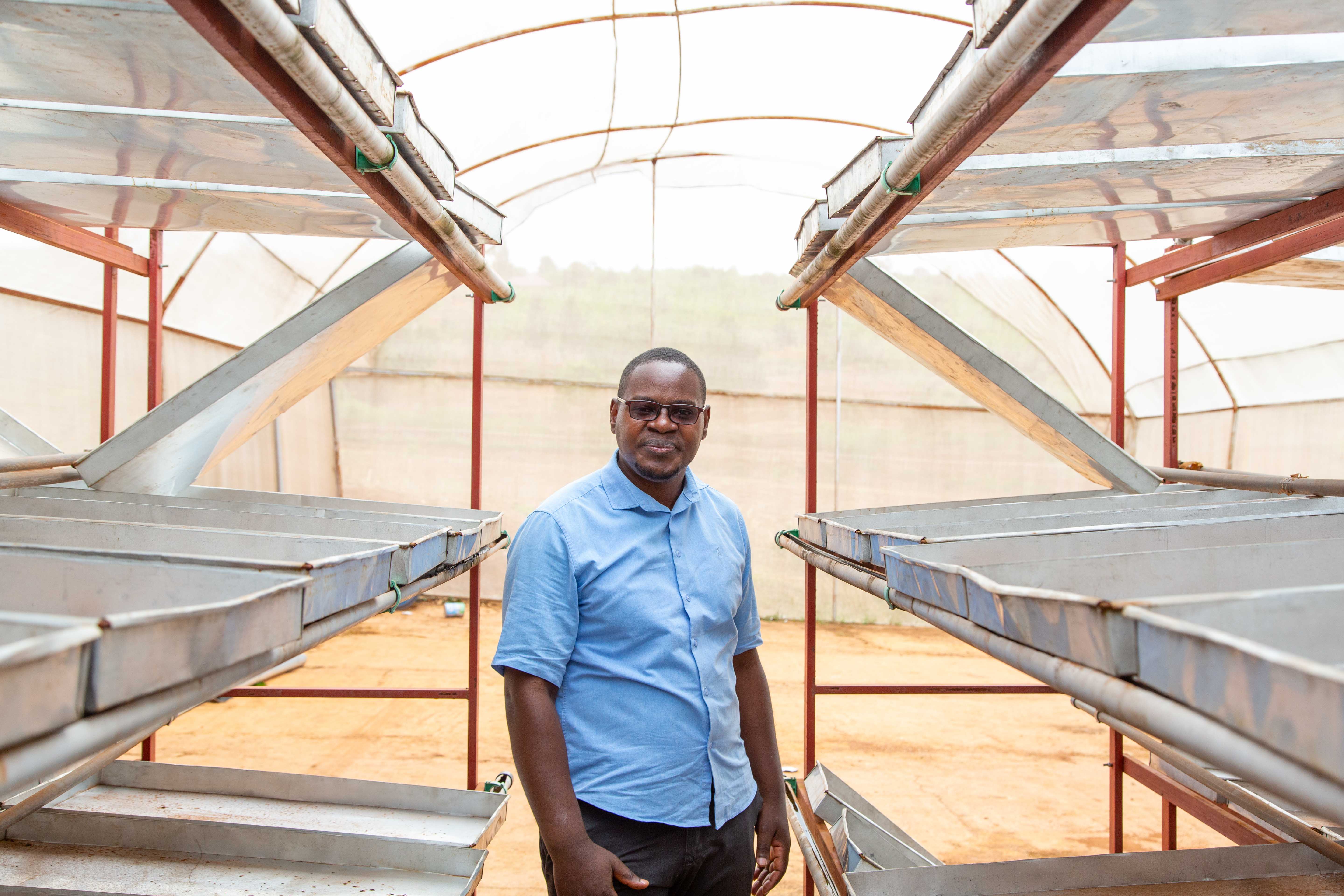
Domestica is an agricultural business started by entrepreneurial healthcare professionals who wanted to combat malnutrition within their community. They recognized that the affordability and accessibility of protein was one of the strongest drivers of health and wellbeing, and thus in 2021 established a goat and poultry farm.
Since starting their business, the Domestica team have tried a range of innovative techniques to reduce costs and increase production. One of these innovations has been hydroponic farming to speed up the generation of livestock feed. As a result, they are able to produce food for goats in 7 days, which allows them to keep and feed their herd using only a small piece of land rather than the more common grazing method. Given the high percentage of smallholder farmers in Rwanda, they recognize this as a much-needed innovation across the country and are now training other businesses to employ hydroponics.
They have also introduced a small solar-power facility which supports their irrigation system to improve water efficiency. Alongside their hydroponics, they have pellet-maker and corn-crusher machines which allows them to transform agricultural waste into food pellets for the goats and create compost both for their farm and as a product to sell to the local community.
The key to Domestica’s growth has been their embrace of new farming techniques, some of which have been successful, while others require more advice, support and finessing. Previous attempts with Black Soldier Flies were unsuccessful, but the Domestica team are excited by the prospect of training and support from CIRF to make this a success,
Domestica also hope to find more sustainable solutions to their farming systems overall, including the cultivation of grasses that will provide additional food for the goat herd, and better market access for their products to support business growth.
They are hopeful that engaging with the CIRF process will support them with their innovations, which in turn will provide access to affordable protein and better health for their community.
Domestica Farm employs 4 full-time employees.
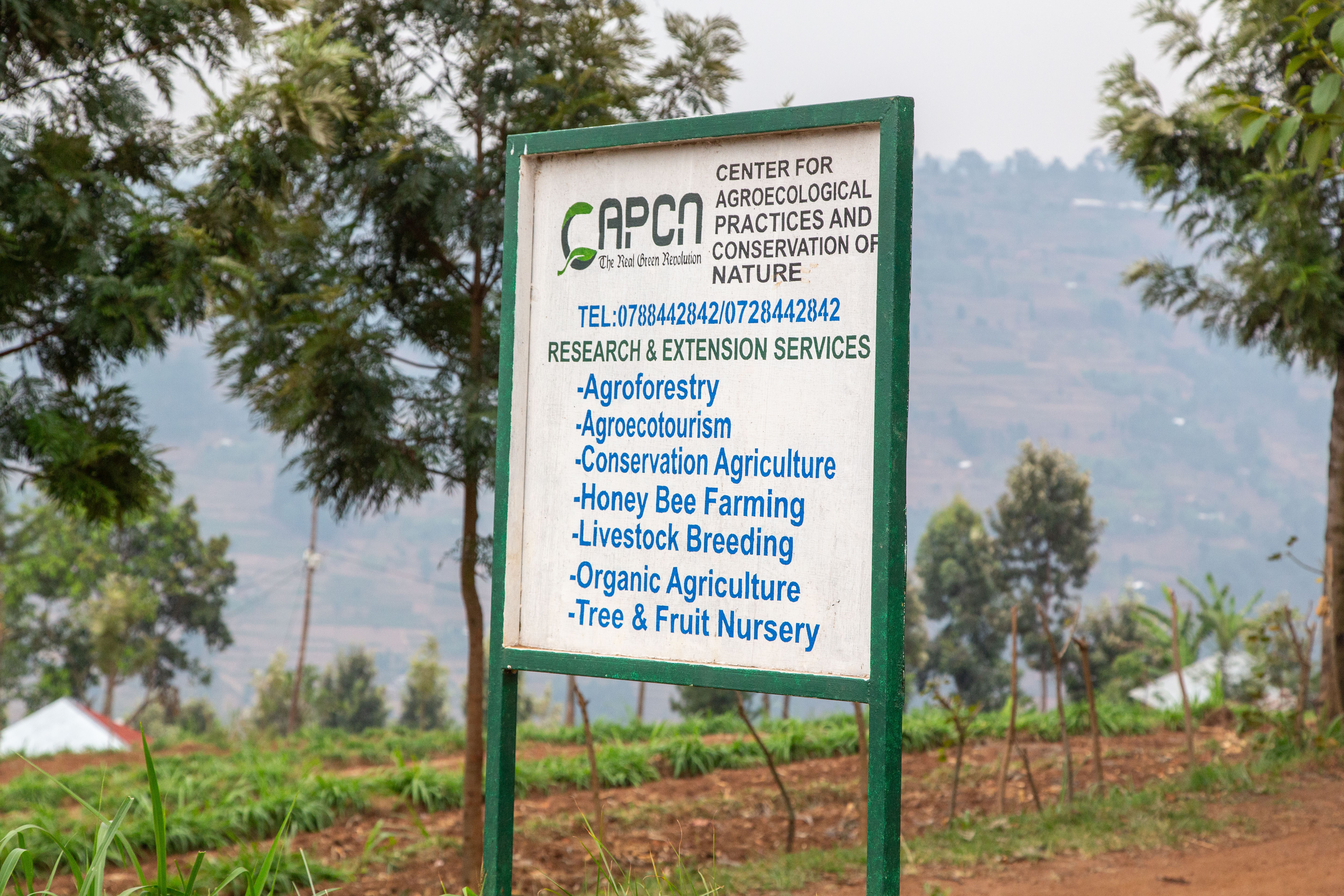
Isaac Mubashankwaya founded the Center for Agroecological Practices and Conservation of Nature (CAPCN) in 2018 on the site of his farm. Despite having been a farmer for many years, it was his decision to study a PHD in agroecology that transformed his understanding of, and passion for a different kind of farming.
Now, the Center relies on a wide range of farming practices, including horticulture: vegetables and fruits, as well as a nursery where they produce and sell seedlings. The Center also includes livestock, including cattle which produce milk and calves that are sold for additional income, and poultry, incorporating indigenous varieties such as duck and geese. This incredible array of farming activities also includes goats and merino sheep, as well as mushroom huts which are managed by local youth. They have initiated compost and vermicompost production and are looking to expand further into eco-tourism opportunities.
The Center was established with the community in mind, seeking to provide training opportunities in conservation agriculture practices, access to techniques which will support local farmers, and the promotion of agroecological techniques which will encourage environmentally friendly farming.
There are already a number of circular practices in action at the center, showing a strong commitment to reducing waste and external inputs. These include the use of cow and pig manure for compost, and also the requisitioning of post-harvest loss from the mushrooms for vermicompost production This compost is then used to support the growth of the seedlings in the nursery, which are sold to the local community for crops, or for trees like grevillea, which are used in agroforestry.
Isaac is hopeful about the impact of the CIRF training for his business, with existing meetings already proving inspirational. He anticipates that the training will support his business practices and embolden his marketing opportunities.
It employs 8 full-time staff, 25 part-time staff, and receives approximately 30 interns across the year for a duration of 2 months at a time.
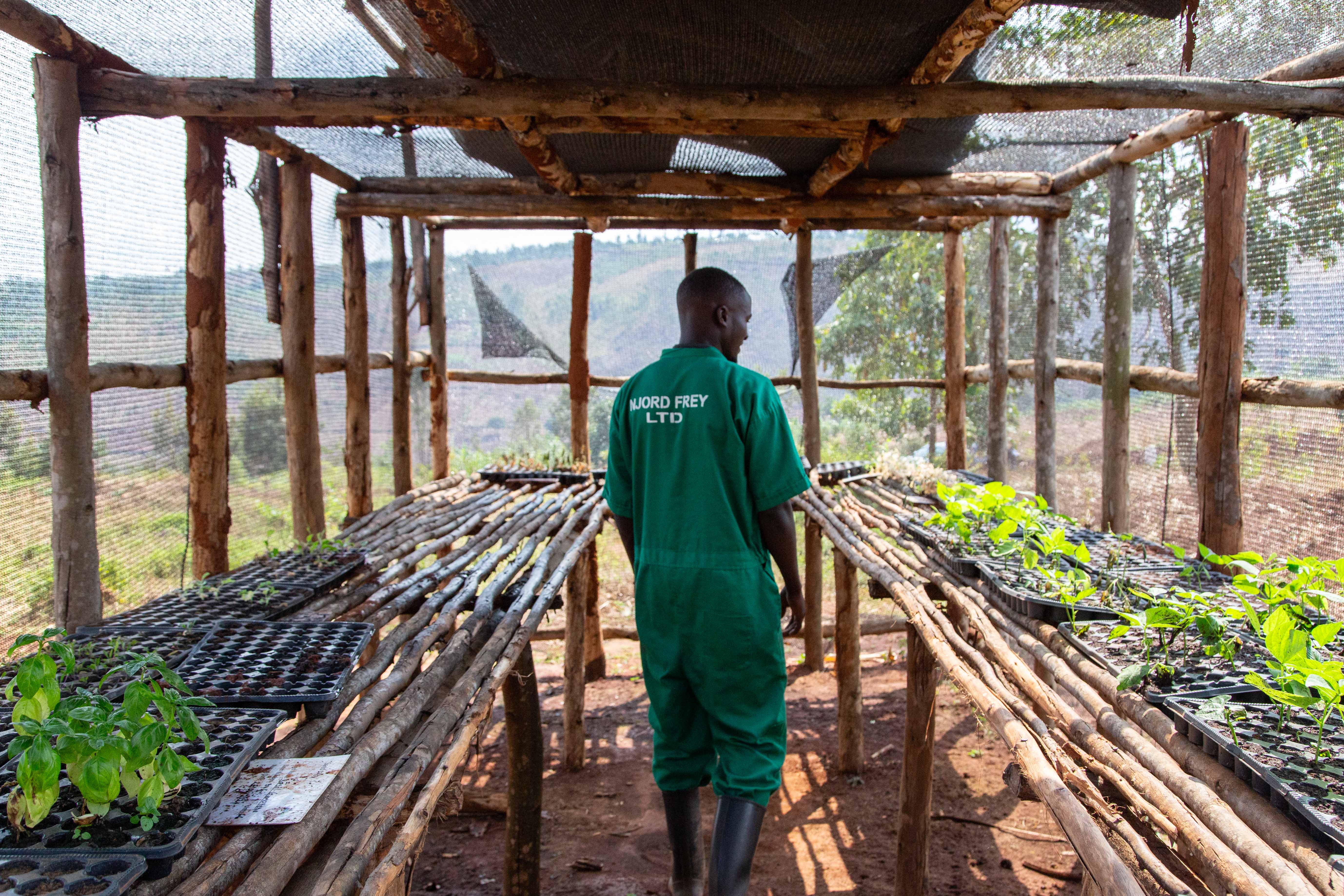
Rwanda is working to produce high-quality crops in sufficient quantities to reduce and prevent malnutrition, whilst also providing enough to sell and export. However, in a landlocked country where approximately 75% of crops are grown on smallholder farms, this is a significant challenge, particularly as the population continues to grow.
Njordfrey identified this as an opportunity and responded in 2020 by showcasing the potential of aquaponic farming to transform food production in Rwanda.
The system is the epitome of circular practice: using fish waste to feed plants, which supports more efficient plant growth and is then filtered clean and reused for the fish, limiting water waste and supporting year-round harvests.
As the seasons have become more unpredictable in Rwanda through the impact of climate change, and as soil is degrading as a result of crop intensification, aquaponics provides an ideal solution. This water-based system produces high quality and quantity yields providing not only nutritious vegetables but vital fish protein.
Though the system is expensive to install, Njordfrey views this investment as a long-term strategy, significantly benefitting individual farmers and the country as a whole.
Their aquaponic solution also responds to the challenges of access to finance for agricultural innovators. There has been some reticence to fund agriculture, seen as being unreliable and unpredictable as a seasonal business, made more precarious by a changing climate. Njordfrey seeks to dismantle this unpredictability by rolling out aquaponic systems across the country which support year-round crops, while minimizing the effort required in classic farming, including digging, weeding, and complex irrigation systems.
Even with their circular system, the team continues to seek additional ways to prevent waste and maximize output to support business growth, including packaging options for their fish and vegetable produce.
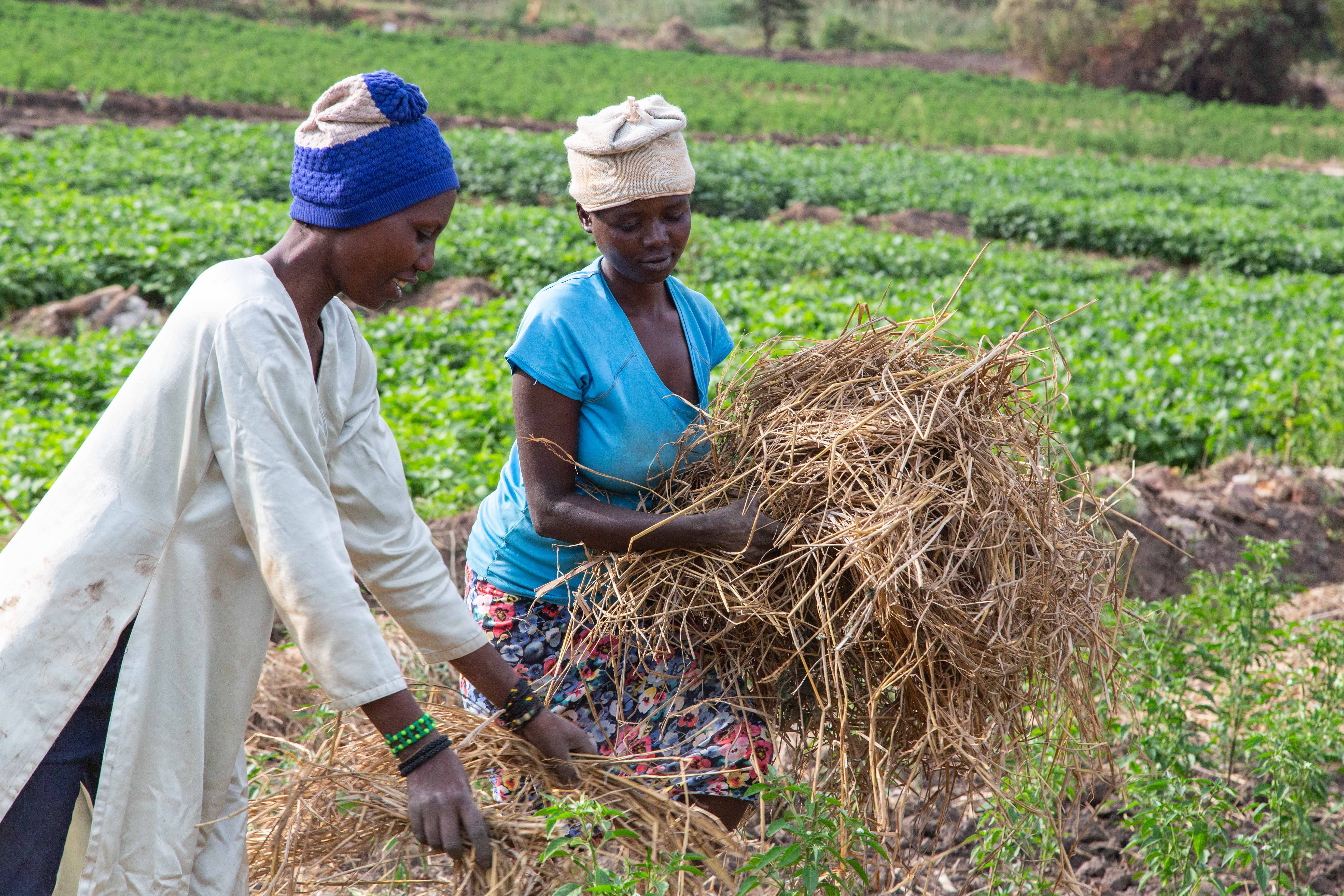
SOUK farm identified an opportunity to expand Rwanda’s agricultural export market, whilst also ensuring that local farmers are paid a good wage. SOUK grow, process and export their own crops, as well as working with ‘out growers’ and partner farms to maximize crop quantity and diversity. By focusing on internationally sought-after fruit and vegetables, they are able to pay farmers twice the amount they would receive for crops grown for the local market.
SOUK provides training and agricultural inputs to the farmers to try and ensure the quality and consistency of their output, as well as the provision of technical support for irrigation systems to ensure a good harvest.
Once harvested, crops are pre-sorted at the farms, and then collected and prepared for export at the packhouse in accordance with the customer’s specifications.
SOUK farms currently produce 600 tons of fruit and vegetables for export to the UK, Netherlands, and UAE, including avocadoes, beans, chilis and French beans, with other products currently under trial. They hope to double that total quantity by the end of 2024.
Alongside the training provided to the farmers, SOUK continues to work hard to overcome challenges with quality control, constantly improving their sorting process. Recognizing the value of circular practices for business, and for the environment, SOUK is committed to reducing waste and promoting soil health. They are also hoping to create new opportunities using waste products, and are seeking a feasibility study into the potential production of avocado oil which they hope will provide them with an additional income stream.
They know that circular practices, and the long-term protection of soil health is vital to their ongoing business success.
SOUK and currently employs 300 people across five sites, including the Southern Province, Nyanza District and Eastern Province, Gatsibo district, with an additional 1200 people working as out growers.
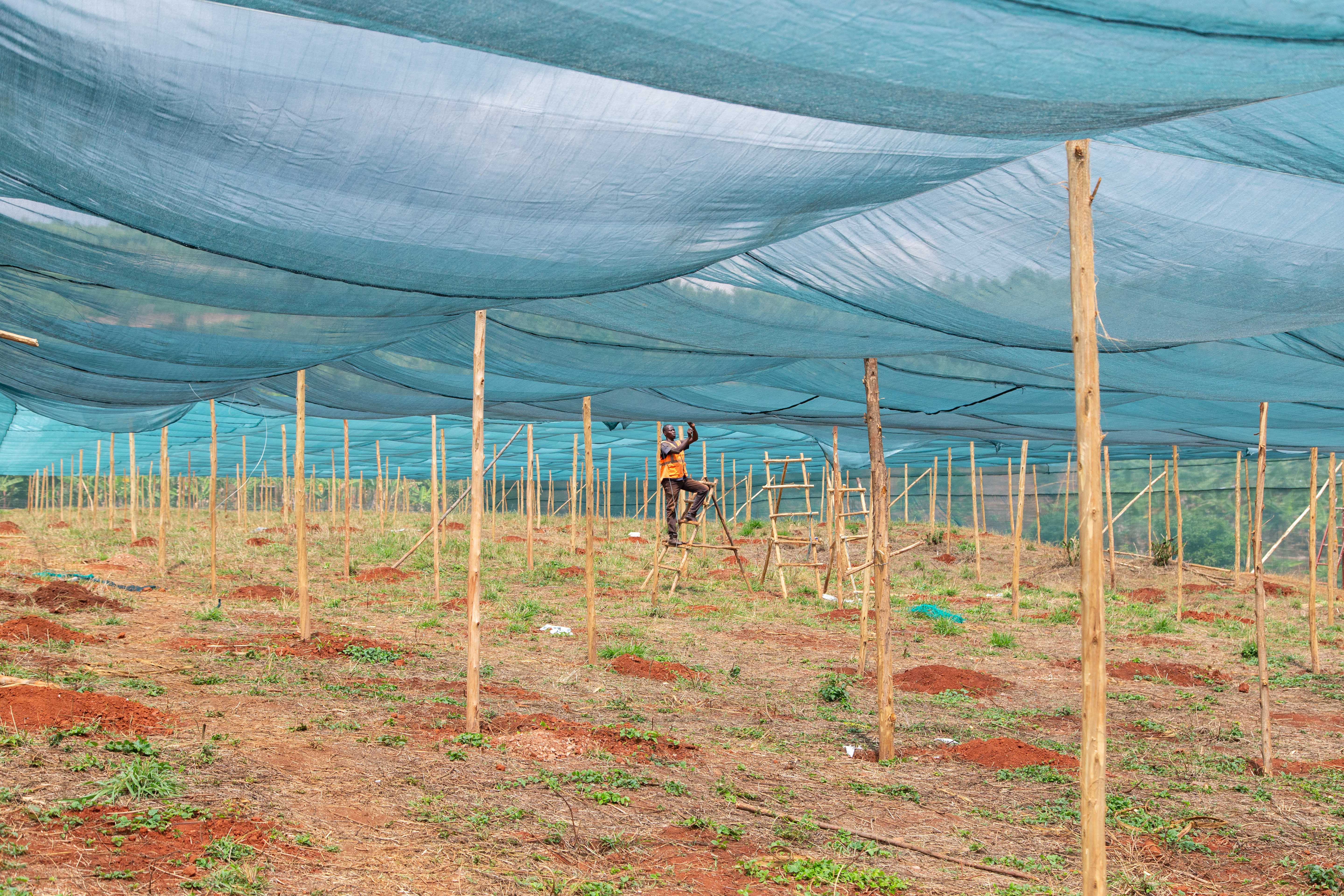
Virunga Biotech was founded in 2017 with the ambition of expanding Rwanda’s export market to Europe. Rwanda’s favourable climate and strong agricultural economy is ideal for the growth of internationally sought-after produce. Virunga have already established themselves in harvesting, cleaning, and packaging chillies for the European market. Now, they have purchased a bubble and ozone washing machine to meet high European standards for premium products.
By listening to the premium product needs of the market, and introducing a high-standard cleaning system, Virunga are working to increase the quality and quantity of export market produce. This in turn will enable farmers to earn a consistent wage at a higher rate than if they were producing for the local market – connecting the farmers with the market and ensuring a much more stable income.
European export standards have long dictated farmer practice around the world. The Rwandan government, implementing European regulations, require any export farmers to use shed nets to reduce pests and pesticide residue. However, this results in a significant cost-outlay for local farmers. Virunga Biotech’s new bubble and ozone washing machine reduces crop residue to such an extent that shed nets are no longer required, thus reducing the cost to the farmer.
From their new site in the Eastern Province, Rwamagana District, Virunga Biotech is processing chili harvests from local farmers, and they have a keen eye on other markets going forward. The efficiency of the new machinery will enable Virunga to expand their line of produce for export: avocadoes, broccoli, and even perishable items like French beans. They also plan to hire their machinery out to other companies, creating an additional business income stream.
As part of CIRF Cohort 2, Virunga are seeking long-term solutions to energy and waste challenges. Electricity is one of their largest business costs, so they hope to find innovative ways to power their new machinery. They also want to prevent the need for landfill by finding a positive solution to spoilt food that would otherwise go to waste. Though they currently have a small composting unit, the new machinery processes 60 metric tons of produce per day, with a 10% loss rate, too much for their existing composting system. The Virunga team are keen to find a better circular solution that avoids the need for landfill.
Virunga Biotech employs 7 full time contract staff and 551 casual workers.
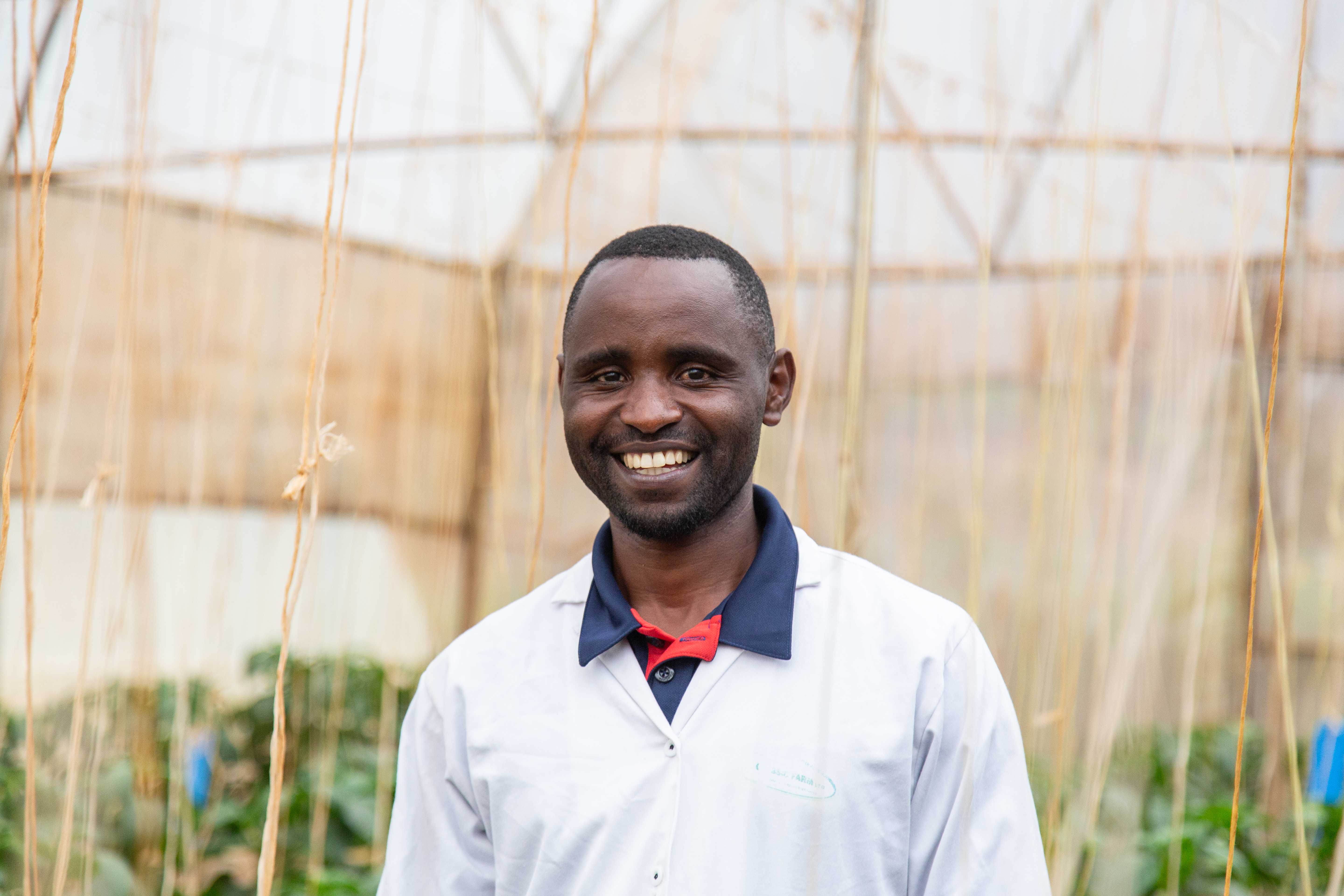
Seraphin Nsengiyumva descends from a family of farmers. Even while studying engineering at university, he knew that he would apply his learning to improve agriculture practices in Rwanda. His ambition is to farm well, in a way that will improve and increase food production and reduce food scarcity.
Since 2019, Classic Farm has evolved from growing tomato plants in a wood-framed greenhouse to a fully-fledged modern site with new infrastructure and a wider range of crops. It also features a fish farm, which relies on circular practices to increase production and minimize waste through the re-use of fish effluent for crop irrigation.
Like many of the agricultural entrepreneurs who are part of CIRF Cohorts 1 and 2, Seraphin has been bold in experimenting with new ideas and innovation.
Seeking to find an alternative to imported industrial fertilizers, Seraphin tried the commonly used urea to support tomato plant growth, but found to his horror that it burnt the leaves. In response, he sought the advice of farming friends who explained the necessity of a multi-application process combined with irrigation. He tells the story praising the shared knowledge and experience of his peers and seeking to always remain open to learning more.
With six full time employees, Classic Farm is also working with the local community to source animal manure to make their own organic compost, which, combined with the fish effluent from their farm, is providing vital nutrients for their crops.
Seraphin is excited about new opportunities, including expanding the work to include Black Soldier Flies which will provide valuable protein for their crops, and improve the quality and quantity of their output. He hopes that a greater engagement with circular practices will increase his farm income and reduce soil pollution.
Seraphin is also hopeful about the prospect of circularity for Rwanda, with better, more sustainable agricultural growth providing employment and increasing food security.
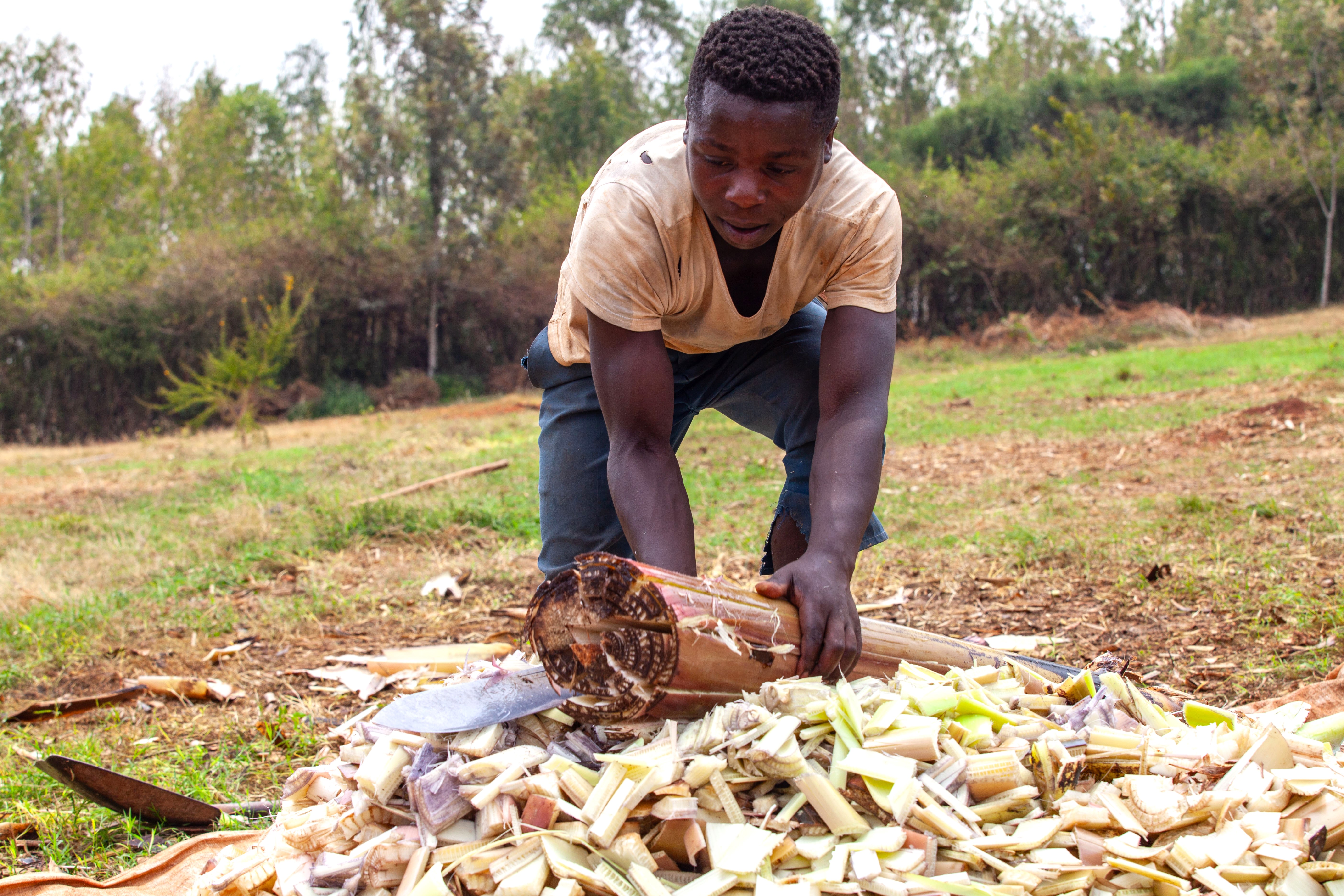
Elim is an extensive and picturesque farm in the north of Rwanda which is seeking to increase food security and sustainability, while reducing waste. Alphonse Kizihira, the founder of the farm estimates that up to a quarter of food that is harvested is lost, often as a result of inadequate storage, pests, or high temperatures. Alphonse hopes to reduce that loss by finding innovative ways to transform crops into longer-lasting products.
Elim farm includes 10 hectares of banana plantations, 19,000 coffee trees, many of which are intercropped with the banana trees to enhance growth, 7 hectares of mangoes, 1.5 hectares of macadamia trees, and 3 hectares of forest, with the remaining land growing beans and maize. They also have 40 beehives, 20 modern and 20 local, which, combined produce approximately 80kg of honey per month.
From agroforestry to intercropping, Elim Farm is practicing conservation agriculture techniques to support healthy yields without damaging the soil. They are also embracing aspects of circularity, including the reuse of cow and pig manure to create compost. They have found multiple uses for maize waste, including being ground into animal feed or used to support compost production.
Despite these innovations, the farm continues to have challenges: acquiring a consistent water supply for their crops - they are currently working on repairing their faulty irrigation system - and better, more sustainable energy solutions. Alphonse hopes that CIRF technical training and assistance will enable Elim to explore biogas and other energy opportunities.
They are also seeking to strengthen market links, increase sales, and investigate value addition opportunities for less waste and more income.
Elim Farm has employed 5 staff and has between 45-50 casual workers on a daily basis.
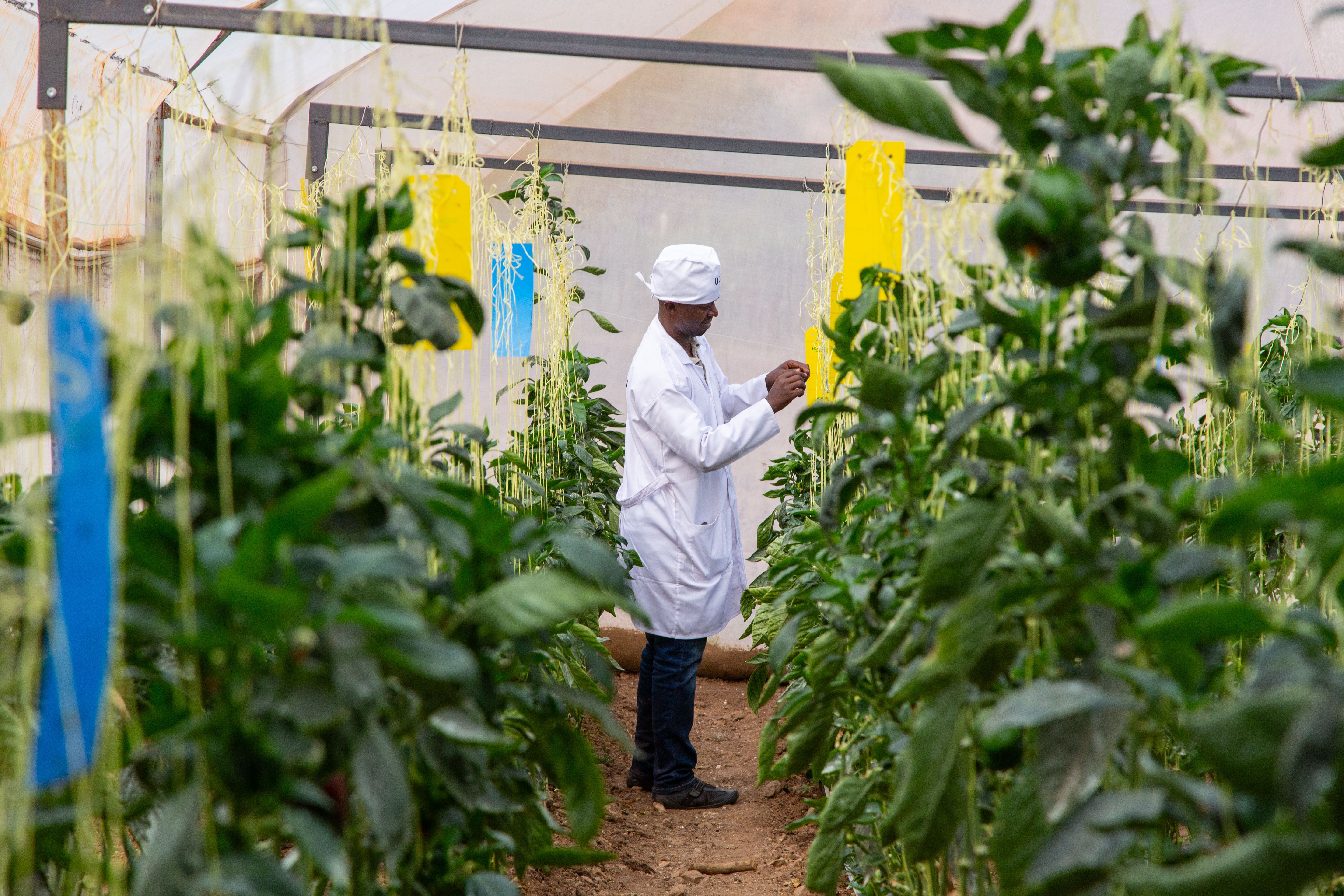
The picturesque Holy Agriculture Farm is situated in Ngoma District, on the shores of Lake Sake, in the south of Rwanda. The farm was started by Jean Claude Munyaneza Kabaiza, a former employee of the Government of Rwanda’s Ministry of Agriculture, or MINAGRI.
Working within the seed division of MINAGRI, Jean Claude quickly recognized gaps and opportunities for quality seed development and production. Following a needs assessment, the Holy Agriculture team identified orange sweet potato and casava crops as a priority for better seed provision. The farm was established to provide these seeds to the local community to support increase yields and reduce malnutrition.
Holy Agriculture also produces other crops – currently 200 – 500kg of bell peppers each week - and livestock, supporting business growth. In addition, the multi-faceted nature of the farm creates better opportunities for circular, interlinked systems including the use of crop residue for pig food, and opportunities for compost creation.
Central to their business model is the reduction of waste from the agricultural value chain to increase income and food stability in the country. They have identified post-harvest processing as a significant opportunity. Like many other farmers who seek to reduce waste and support growth, they have focused on the need for food processing techniques, which will ensure that more of their crops can be transformed into long-lasting and nutritious foods.
As the farm continues to grow, Jean Claude is hopeful that the CIRF training will support their continued learning and business expansion with opportunities for knowledge, new techniques and training in circular innovations.
Holy Agriculture employs 10 permanent staff and 50 casual staff.
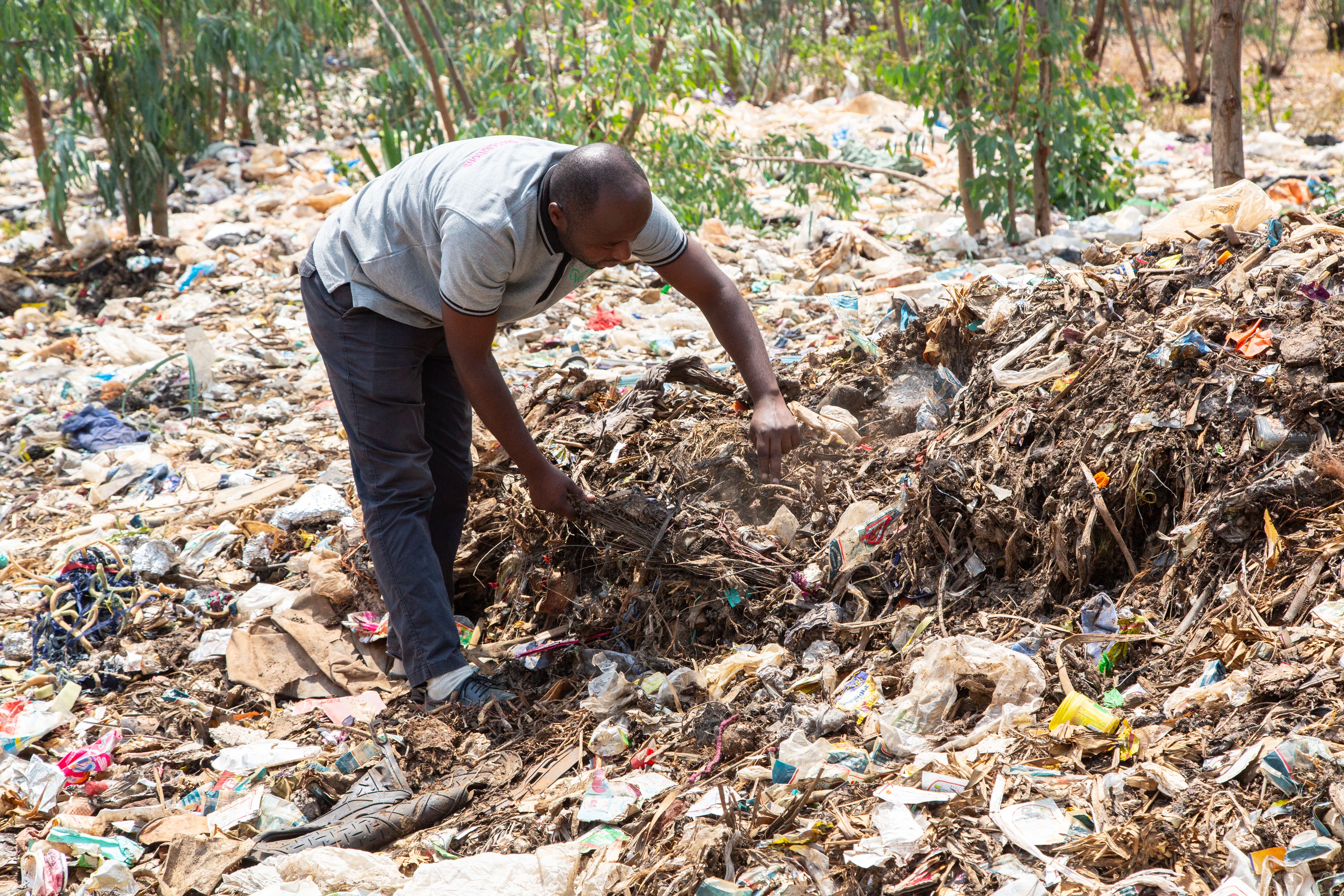
Rwanda BioSolutions is working with the community and local authorities to transform waste into high quality compost, through biotechnology.
Their compost relies on three different types of inputs: Rabbit dung and urine, household and business waste, and general waste from the local dumpsite. The latter is sorted into degradable and non-degradable waste, for processing. The team create a pile from the inputs, which are then treated with effective microorganisms to speed up the process of decomposition. As a result, they are able to produce compost in a third of the time that it would take without the microorganisms.
This compost business was developed to meet the need within the community for affordable organic inputs that would support soil health in the long term. Rwanda BioSolutions, like many of the SMEs in CIRF Cohort 2, understand the need to feed the growing population of Rwanda in a way that is sustainable, but also preserves soil health. Rwanda BioSolutions have witnessed the negative impact of inorganic fertilizer on farms in Bugesera district and are committed to finding a better solution that supports soil health and the environment.
They are also seeking a soil solution that’s affordable to their communities in the long term. Industrial or inorganic fertilizer can cost six or seven times the amount of the equivalent organic fertilizer. Even with vital government subsidies, inorganic fertilizer is still a significant investment for farmers.
As well as selling affordable compost, Rwanda BioSolutions is also running programs to support the local community, providing waste management, training and farmer field schools to encourage the uptake of organic fertilizers and conservation practices. They also work to support teen mothers who are trying to create an income through farming.
Like other business and farmers in the neighborhood, they face significant challenges with transportation. As well as collecting waste from the dumpsite and the surrounding area, they have to find ways to deliver compost to farmers. In a fairly remote location along dirt roads, the movement between sites become challenging, particularly during rainy season.
Already embracing some circular practices, the Rwanda BioSolutions team are excited to find new ways to share ideas, knowledge and information with Cohort 2 of the CIRF program, and discover innovative ways to transform waste, respond to their challenges and improve their business model.
Rwanda BioSolutions employs 2 permanent staff, 4 part time staff, and 30 casual workers.
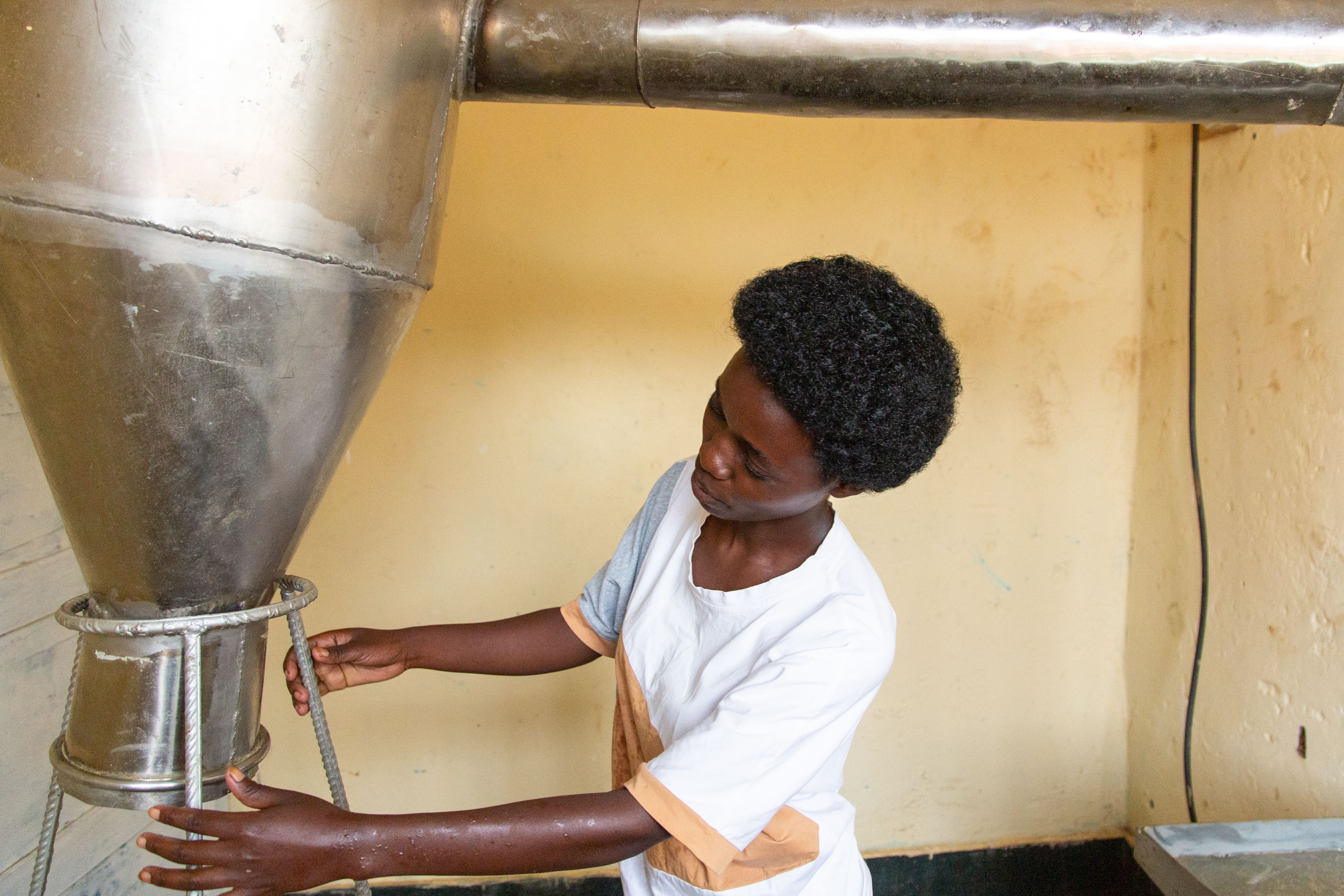
Triumvirate was established by two enthusiastic university students in 2016, seeking to find innovative ways to respond to the challenge of child-malnutrition in Rwanda. With degrees in agricultural processing and marine wildlife, Jean Pierre and Alain combined their knowledge to innovate a fish-based solution: sambaza flour.
Despite the efforts of the government of Rwanda and the action of multiple NGOs, malnutrition in the country remains at approximately 30% for children under five. The cost of malnutrition, aside from terrible physical stunting also includes limited school attendance, increased family pressures, and results in government investment in costly international solutions: Rwanda currently spends approximately $80 million per year buying protein additives from international suppliers.
Recognizing a need and an opportunity, Triumvirate was established to fight malnutrition using local, readily available resources, “we want to make it accessible, affordable and efficient”.
Sambaza fish, usually found in lakes, are an excellent source of protein, providing vital nutrients for combating malnutrition. Yet, even locally sourced fish products are too expensive for much of the population. Seeking to overcome these obstacles, the founders of Triumvirate worked with USAID scientists to identify a solution. Their findings showed that just 15 grams of sambaza flour would provide sufficient daily protein and minerals for children under 5, a much more cost-efficient way of accessing nutrients. In addition, by converting sambaza fish to flour, it was possible to extend the shelf-life of the food, so that it could be transported long distances without losing its nutritional value.
Triumvirate are seeking to expand the scope of their work to include vegetables and cereals which will fortify their product or create a new nutritious range. They hope that their engagement with CIRF Technical Assistance Providers will help to find more circular solutions, transforming waste and using resources more efficiently to increase production.
Triumvirate employs 7 full time staff, and almost 200 women via partner cooperatives. They currently produce 50 tons of sambaza flour every year.
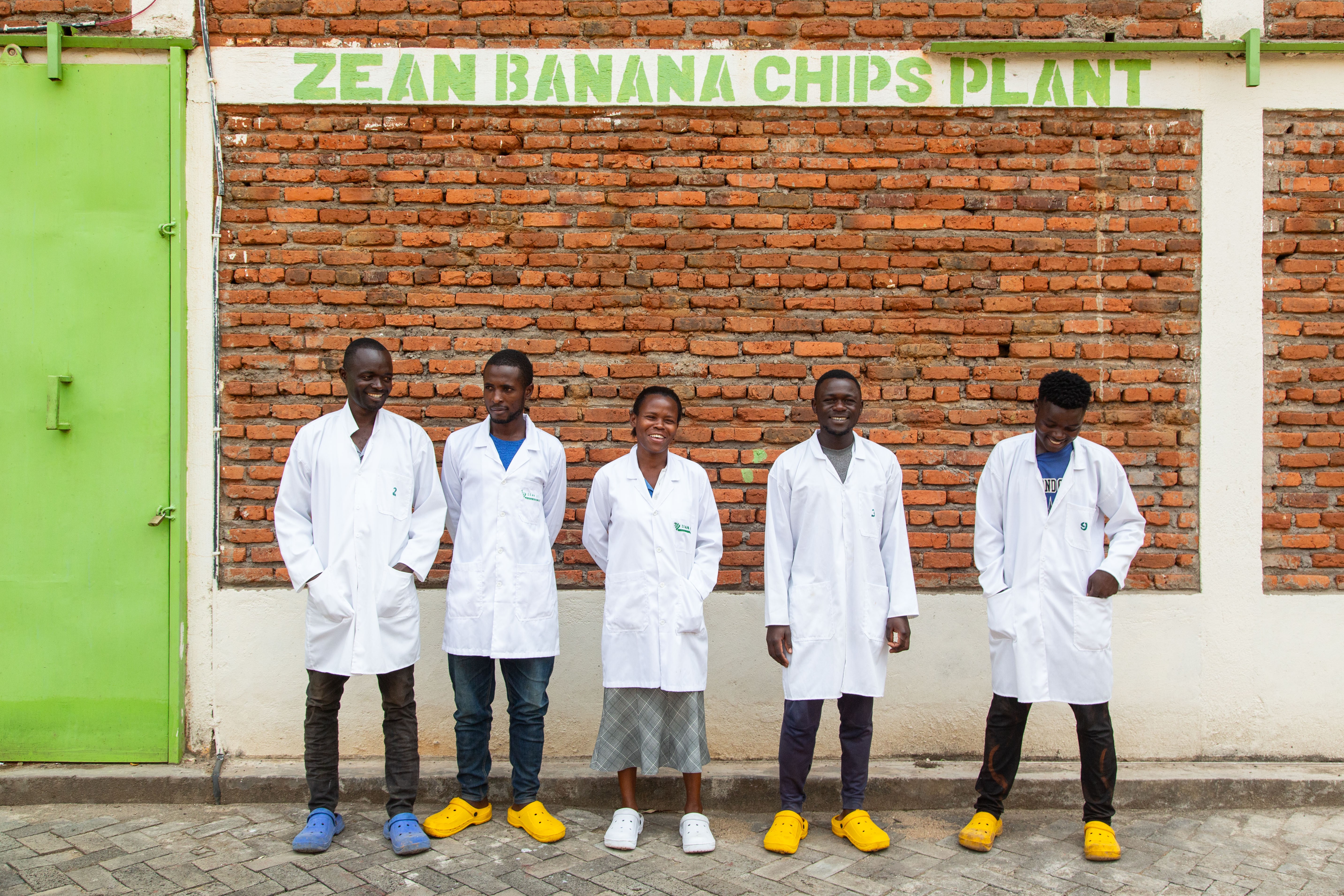
ZEAN is a maize and banana processing business that was founded to transform post-harvest loss from a problem to an opportunity. Buying from local cooperatives and farmers, the maize crop is processed into flour, which is affordable and sought after by the local community, and bananas become fried chips which are popular on the urban market. By prolonging the shelf-life of each of the crops, post-harvest waste and financial loss is reduced.
Located in the northern province, on ‘Agri-innovation row’, the same road as SMEs Golden Insect and one of the SOUK farms, ZEAN is currently consolidating two separate sites to improve the efficiency of their banana and maize processing. The banana site houses a large, purpose-built warehouse with clearly marked spaces for the collection of crops, weighing and cleaning, technological processing, and packaging.
By processing foods to increase the shelf life, ZEAN can use a different business model for paying farmers: using weight, rather than sight, the common practice in Rwanda. This ensures that farmers are getting a consistent price for their bananas and maize, which allows them to save, invest, and build their farming businesses, creating greater stability.
As a result of this consistency, ZEAN is able to work with 6 cooperatives, and over 1560 individual farmers, to produce 40 metric tons of banana chips, and 108 metric tons of maize flour.
As effective businessmen, they are also seeking new ways to reduce waste and turn a profit. They hope that engagement with CIRF Technical Assistance Providers will enable them to generate new sources of income. They see untapped potential in the use of banana peels, currently a waste product, and hope that the oil used to make banana chips could be transformed into fuel.
ZEAN employs 26 permanent staff and 76 casual laborers.
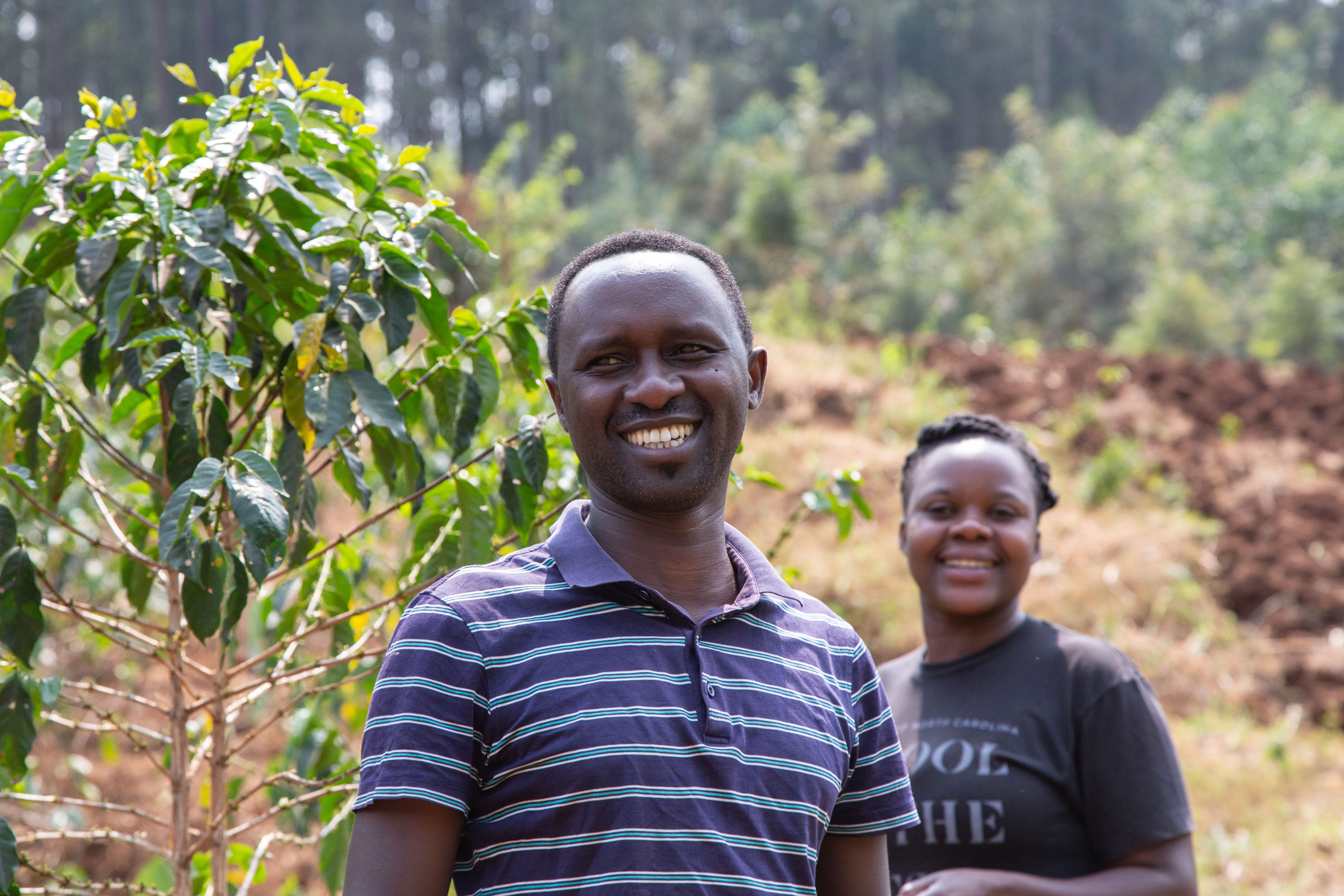
Gisuma Coffee Cooperative was originally founded in 2009 and formally registered in 2010 by a group of 56 women seeking to improve the livelihoods of their community. This cash crop has long been a popular farming choice in the Western Province, but with variable markets, and a reliance on a single harvest each year, there is a push amongst coffee communities to find new income streams.
Now managed by and incorporating men and women coffee farmers, Gisuma currently provides coffee washing and processing for 185 members, with 808 non-members also occasionally contributing. The Gisuma team emphasizes that there are many farmers in neighboring communities with coffee to sell, if the opportunity arose. In line with 75% of farming in Rwanda, many of these are smallholder farmers with less than 1 hectare of coffee trees, and so cooperatives like Gisuma are vital to the gathering, processing and selling of this crop.
Yet, market access is a considerable challenge for this Cooperative. Despite being recognized and paying for Fairtrade coffee status, the enterprise has struggled to access international markets.
Committed to creating new opportunities, expanding their income, and reducing waste, the leadership of Gisuma Coffee Cooperative is excited at the prospect of CIRF technical assistance provision. Their hope is that it will provide many new opportunities for business development, as well as protecting the environment.
Their first ambition is to find a solution for the waste coffee pulps, which they hope to turn into compost or vermicompost, which can then be sold at affordable prices to local coffee farmers.
They are also seeking connections that will allow them to expand their knowledge and understanding, as well as increase links to the market and access to finance.
The business employs four people as staff, and 30-40 casual workers on a seasonal basis.
They currently can process 350 tons of coffee cherries.
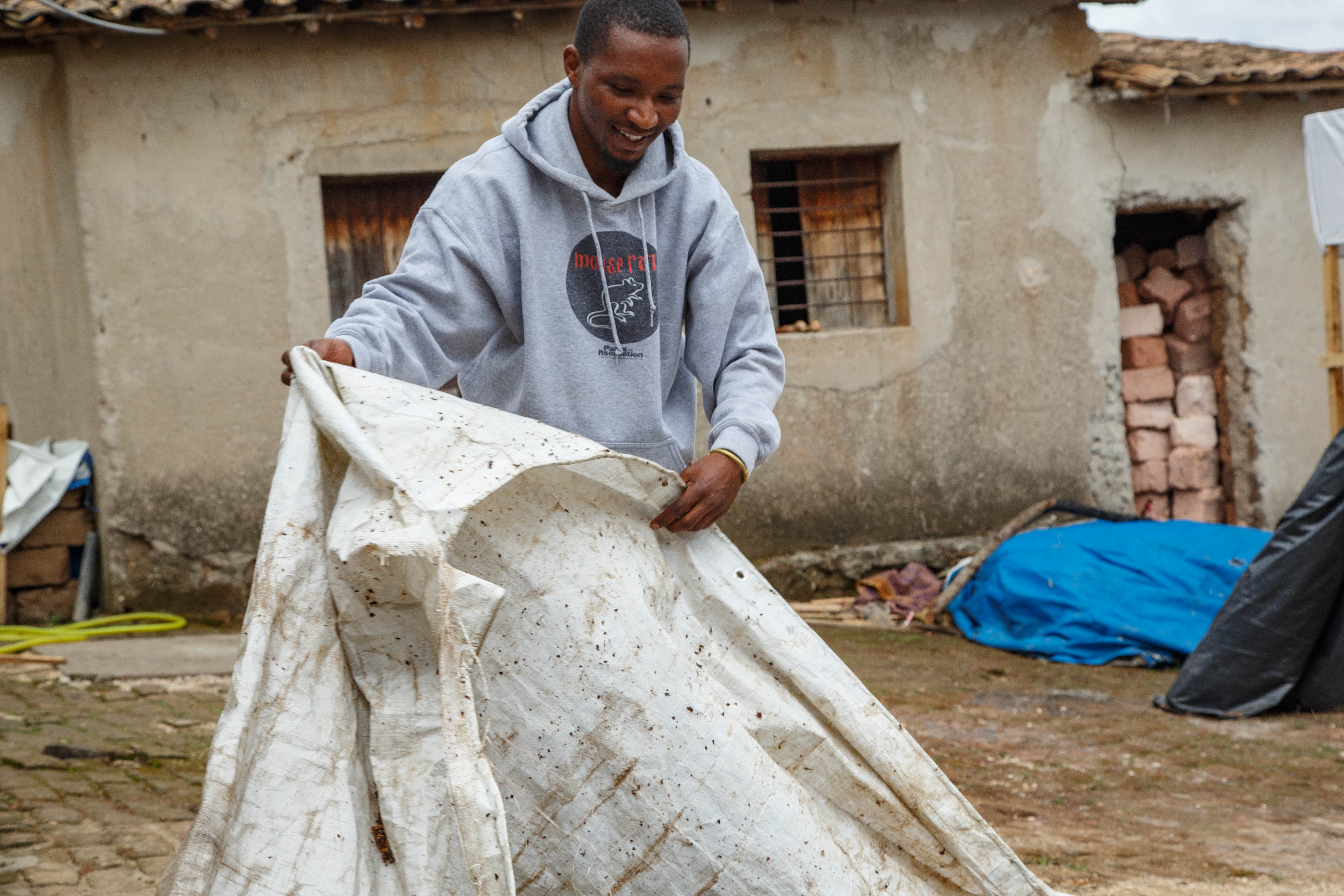
INEZA was founded in 2021 to generate health and wealth in Rwanda by growing and selling mushroom kits and fresh mushrooms. The business was founded by a dynamic group of young people who saw the business as an opportunity to create employment, whilst increasing the provision of nutritious food to their community. They are located in Muhanga, Southern Province.
The team creates mushroom tubes or ‘kits’ from a combination of mycelium and substrate, which are then used to grow fresh mushrooms. Of the 800 – 2000 tubes they produce per month, over 60% are sold to local farmers, and the remaining 40% are retained for mushroom generation and sale.
INEZA is currently based in a few rooms of a small residential property where, remarkably, they are able to grow 50kg of mushrooms per month. They have big ambitions to increase their production, having already identified a new site for their business, with the hope of moving in the new year.
Their process relies heavily on the agricultural inputs that are used for the creation of a substrate, the vehicle in which mushrooms are grown. Historically, there has been a heavy reliance on cotton husks, which are imported from Tanzania. More recently, Rwandan innovators have been using coffee pulps and bean husks to supplement, reducing the costs of inputs and finding locally sourced, circular opportunities.
Cotton husks still form a necessary 50% of substrate creation, so business provision is significantly limited by a slow import supply – a smoother supply chain would allow better production and increased growth.
One area of supply that the team are managing for themselves is the need for mycelium. Currently provided through the Rwanda Agriculture Board (RAB), they are now trying to develop a separate supply to feed their business for a lower cost, and potential sell to other mushroom growers.
They also see an opportunity for dried and processed mushrooms, with requests from potential customers as far afield as Kenya. The team hopes that investment in mushroom processing methods will enable them to reach new markets, whilst reducing waste from post-harvest loss.
INEZA is excited about working with the CIRF team to expand their circular practices. They have already received training in vermicompost and vermi-liquid production and were proud to show off their initial trials. Named the Zero Waste Management Project, they have been collecting household and organic waste from the local community, and they are excited to be transforming a waste product into a new income stream.
The team expressed a strong commitment to support the government of Rwanda initiatives in reducing waste and negative environmental impact. They want to see improved soil health, better nutrition and the creation of jobs for young people.
INEZA employs 3 full-time workers, and between 20-30 part-time workers throughout the year, as needed.
Rwanda BioSolutions | Transforming Rwanda’s Food System with Circular Food Systems |
Rwanda BioSolutions is part of the second cohort of 13 businesses that are receiving technical assistance through the SME Facility of the Circular Food Systems for Rwanda project (CIRF) to contribute to a sustainable circular economy in Africa. Learn m
